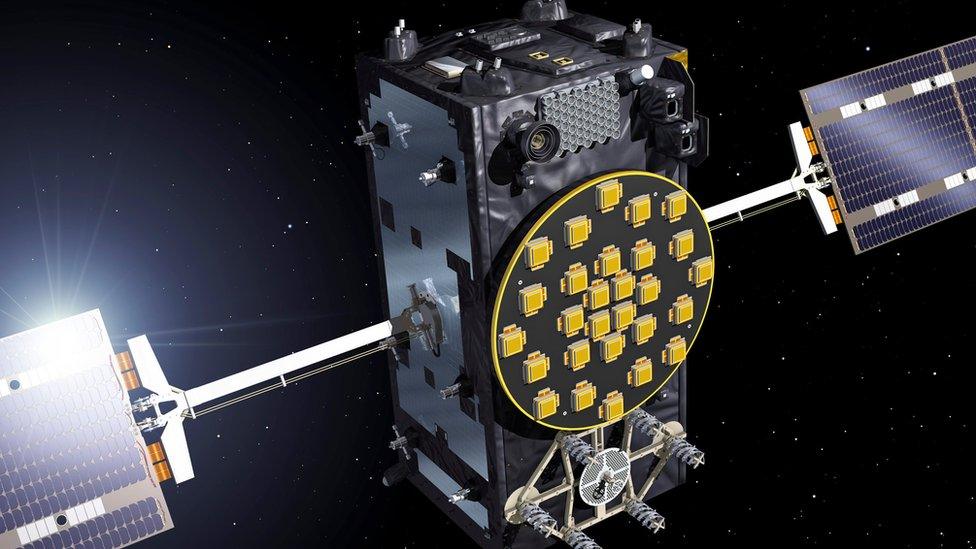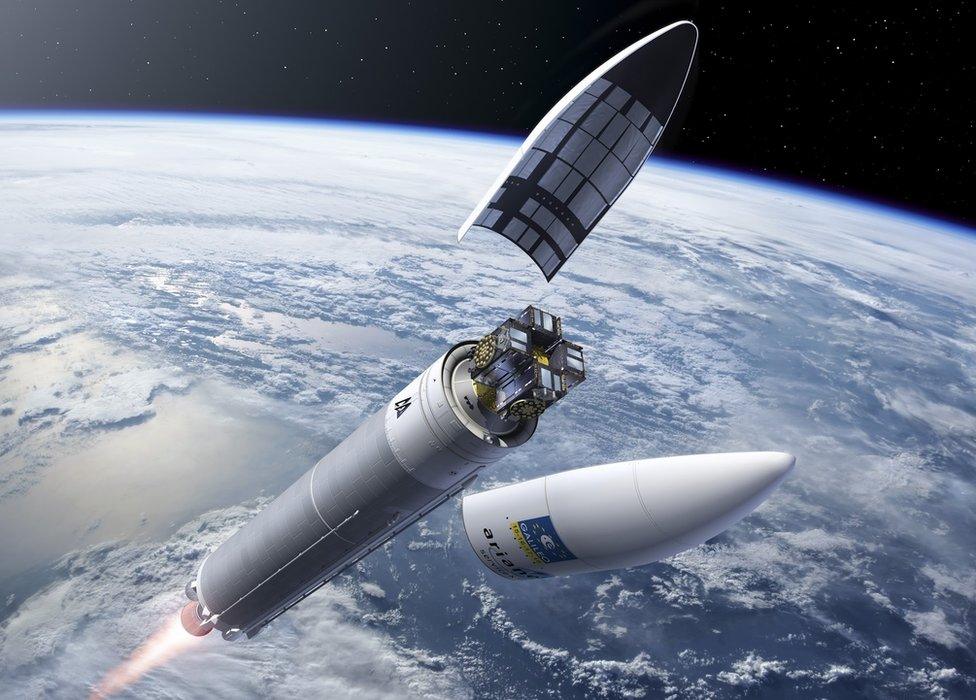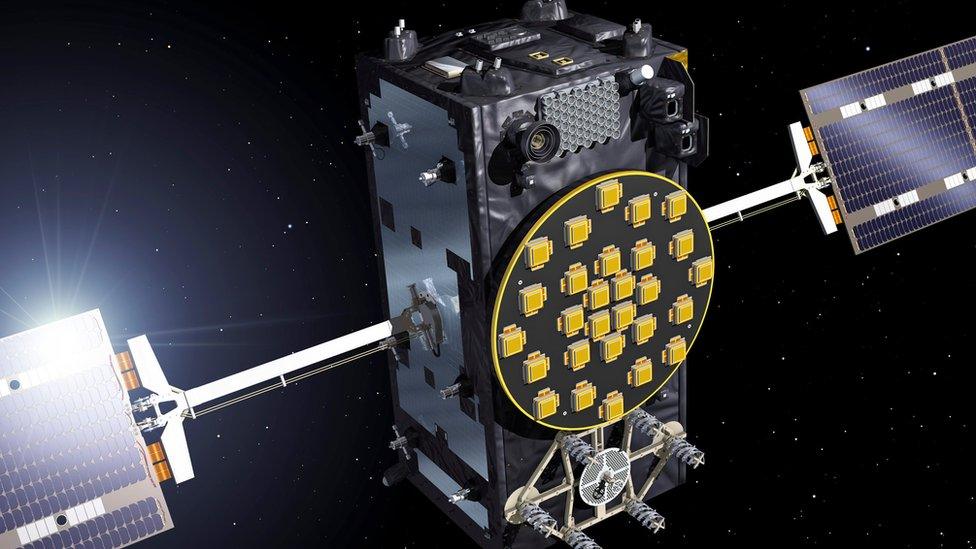Galileo: Funding pledge for UK rival to EU sat-nav system
- Published

The UK has already spent 1.4bn euros (£1.2bn) on Galileo
Funding for the UK's own satellite navigation system to rival the European Union's Galileo project is expected to be announced.
It comes after the UK was told it would not be able to access the EU-wide programme after Brexit next March.
At least £92m has been promised by the Treasury to plan for a UK system, a government official has told the BBC.
The UK has already spent 1.4bn euros (£1.2bn) on Galileo, Europe's answer to the US GPS system.
Costs for a UK-only sat-nav system are likely to run to several billion pounds.
Head-start
A feasibility study to work out what a UK programme might look like would cost around £100m alone, according to the official.
While the UK would prefer to remain in Galileo as part of a strong partnership with Europe, the funding announcement, expected later this week, is not a negotiating tool, the official insisted.
The government believes the feasibility work will allow the British space industry to remain at the forefront of the market, regardless of whether an alternative to Galileo is eventually commissioned.
The row over Galileo centres around whether the UK can continue to be trusted with the EU's most sensitive security information after Brexit.
The UK's armed forces were planning to use Galileo to supplement their use of the US GPS system.
Business Secretary Greg Clark told the BBC in April: "If Galileo no longer meets our security requirements and UK industry cannot compete on a fair basis, it is logical to look at alternatives."
If ministers give the go-ahead for the UK GPS system to be built, they will aim for costs to be in the region of what Britain had set aside as its contribution to Galileo.
The UK Space Agency has said a British project would have a head-start thanks to work already done and because much of the expertise is UK-based.
Furthermore, the system would be built to the specifications of just one country rather than needing to fulfil the requirements of all the EU's member states.
Graham Turnock, the agency's chief executive, has said the UK has "a lot of the capability that would be needed for a sat-nav system because we developed them as part of our role in Galileo".
"We cannot launch yet, although obviously we are trying to address that, but this is something we think is in the realm of the credible," he added.
In May, the UK Space Agency, wrote to 13 firms to remind them that they need security authorisation to engage in any future contracts on the EU's Galileo system.

Europe's Galileo system

Artwork: Galileo satellites are now launching on Europe's premier rocket, the Ariane 5
A project of the European Commission and the European Space Agency
24 satellites constitute a full system but it will have six spares in orbit also
26 spacecraft are in orbit today; the figure of 30 is likely to be reached in 2021
Original budget was 3bn euros but will now cost more than three times that
Spacecraft have been launched in batches of two, but now go up four at a time
Will work alongside the US-owned GPS and Russian Glonass systems
Promises eventual real-time positioning down to a metre or less
- Published26 March 2018

- Published25 April 2018
